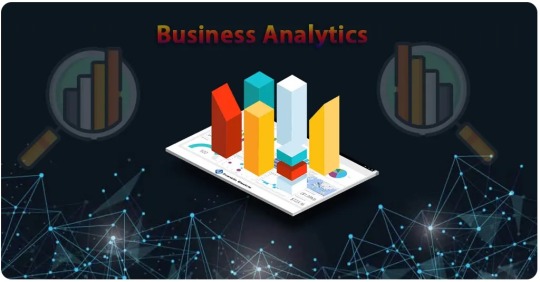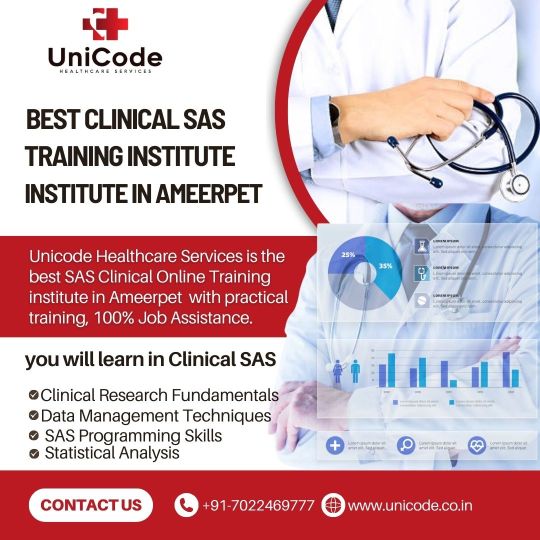#Advanced analytics services
Explore tagged Tumblr posts
Text
The Role of Advanced Analytics in ESG Data Interpretation
Sustainable, inclusive, and secure development is an ambitious, long-term project. However, stakeholders can accomplish the goals if they leverage environmental, social, and governance (ESG) metrics. In recent years, ESG ratings have gained broader acceptance while analytical methods keep getting better. This post will discuss the role of advanced analytics in ESG data interpretation.
The Importance of ESG in Sustainability Compliance and Ethical Investing
It is now an appropriate indicator of whether a brand's corporate social responsibility (CSR) and sustainability promises have turned into tangible, on-ground results. On the flip side, advanced analytics services can empower businesses and ethical investors to brainstorm ideas to find compliance improvements.
Remember, firms face pressure from multiple stakeholders to gather, process, and publish sustainability accounting data. However, complexity and extensive data volume that require systematic transformation overwhelm most enterprises. That is why collaborating with data specialists in the ESG and CSR analytics domain is the need of the hour.
Appreciating the Role of Advanced Data Analytics in ESG Interpretation and Reporting
1. Identifying Patterns, Trends, and Unethical Organizations
Advanced analytics employs state-of-the-art machine learning models. Experienced data professionals will also optimize them for industrial ESG data analytics. Related tech innovations comprise artificial intelligence, big data, and data quality management tools.
Enterprises and investors can leverage these technologies to uncover various hidden dataset patterns that would have been untraceable in conventional analyses.
For instance, consider carbon emission calculations or deforestation risk forecasts. Similar concerns have inspired many ESG and sustainability accounting frameworks worldwide. Today, advanced analytics have streamlined how conscious businesses and fund managers discuss those metrics.
Accordingly, leaders can highlight ESG compliance vulnerabilities along supply chains. Consumers can select ethical brands to buy from. Likewise, ethical investors can remove companies with poor ESG ratings from their portfolios. Doing so will help them send the message to the fund-seeking organizations that obsolete, pollution-causing workflows or unsafe working conditions will not be forgiven.
2. Ensuring Greenwashing Prevention and Disclosure Transparency
The main concern with ESG reporting is transparency. Consider the controversial records of several firms' greenwashing attempts. Essentially, some brands had mischaracterized their progress toward sustainable development goals (SDGs) to get more funds by misusing marketing channels.
Thankfully, responsible ESG data interpretation is possible with the help of veteran advanced analytics professionals. At the same time, stakeholders, including consumers and employees, demand that the data used to make informed decisions about sustainability accounting initiatives be accurate, verifiable, and comparable.
Advanced analytics helps companies fulfill their expectations via the automation of data collection and standardization of ESG compliance reporting processes.
3. Maintaining and Updating Multiple Compliance Risk Monitoring Methods
Why would ESG ratings change? Corporate mergers and acquisitions (M&A) impact corporations' compliance effectiveness. Besides, sustainability accounting standards might undergo periodic revisions. Furthermore, different economic zones within a nation might necessitate distinct compliance metrics.
On the international scale, remarkable differences between ESG performance frameworks can lead to multiple ratings. Similarly, a company might maintain distinct standards of workplace safety and industrial waste disposal due to the loopholes in regional laws. So, its ESG score per branch office will be unique.
The above considerations prove that ESG compliance reporting and financial materiality risk calculation are continuous procedures. In other words, you cannot stop conducting ESG audits.
Still, handling multiple compliance data management methods can adversely impact the well-being of employees, analysts, investors, and decision-makers. As a result, reducing manual tasks and adopting advanced analytics are activities too crucial to be postponed.
Conclusion
Advanced analytics plays quite an influential role in the interpretation of ESG data and sustainability accounting compliance scores. It gives organizations the scalable, automation-friendly abilities to make sense of complex datasets. That is why ethical investors and modern businesses can enhance transparency and respond to multiple ESG risks.
Given the urgency to work toward SDGs, integrating analytical techniques for combating inefficiency, greenwashing, and disclosure errors is more necessary than ever.
0 notes
Text
Business Analytics Services | Connect Infosoft | Data-Driven Solutions
Discover the transformative potential of your data with Connect Infosoft's Business Analytics services. Our expert team offers comprehensive solutions to unlock actionable insights and drive informed decision-making. From analytics consulting to advanced tools and visualization services, we empower businesses to harness the full power of their data. Partner with us for predictive analytics, data visualization, and business intelligence tools that pave the way for success.
For more info: Click Here

#Business analytics solutions#Data-driven insights#Analytics consulting services#Business intelligence tools#Advanced analytics services#Data visualization services#Predictive analytics solutions#Data analysis consulting#Business data analytics#Data-driven decision making
0 notes
Text
Business Intelligence Solutions: Unleashing the Power of Managed Analytics

In today's dynamic business landscape, the effective utilization of data is pivotal for informed decision-making and sustained growth. Business Intelligence (BI) solutions have emerged as a cornerstone, offering organizations the ability to glean actionable insights from their data. This article explores the transformative impact of BI solutions and how managed analytics, coupled with outsourced IT management, is reshaping the way businesses harness the power of data.
1. Proactive IT Support and Managed IT Services:
BI solutions thrive in an environment supported by proactive IT services. Managed IT services, which include proactive support and maintenance, ensure the seamless operation of BI tools. This proactive approach not only enhances the reliability of analytics but also minimizes downtime, allowing businesses to make real-time decisions.
2. Advanced Analytics and Data Visualization Services:
Managed analytics encompass advanced analytics services that go beyond basic reporting. Data visualization services play a crucial role, translating complex data sets into visually appealing and understandable insights. This facilitates better communication and comprehension of data-driven findings across all levels of an organization.
3. Cloud Management Solutions and Migration Strategies:
The integration of cloud management solutions is a game-changer for BI. Cloud migration solutions offer scalability, flexibility, and cost-efficiency. Managed BI services leverage cloud optimization solutions, ensuring that businesses make the most of cloud resources while maintaining peak performance.
4. Data Science Solutions and Hybrid Cloud Integration:
BI solutions often involve intricate data science methodologies. Managed analytics extend to data science solutions, enabling organizations to employ predictive analytics and machine learning for more accurate forecasting. Hybrid cloud solutions provide the necessary infrastructure for hosting and processing data across different environments securely.
5. IT Consultation Services and Strategic Managed Services:
Strategic IT consultation services are instrumental in aligning BI strategies with overall business objectives. Managed services, including serverless computing and big data consulting, are designed to optimize the performance of BI tools, ensuring they adapt to evolving business requirements.
6. Cloud Consulting Services and Holistic Cloud Management:
BI solutions benefit from specialized cloud consulting services. These services guide organizations in selecting the most suitable cloud platforms and architectures for their BI needs. Holistic cloud management services oversee the entire cloud ecosystem, ensuring optimal performance and security.
In conclusion, the convergence of BI solutions and managed analytics is reshaping the way businesses interpret and leverage their data. With the right blend of outsourced IT management, advanced analytics, and cloud solutions, organizations can unlock the full potential of their data, gaining a competitive edge in today's data-driven era.
#it consultation services#managed service#serverless computing#big data consulting#business intelligence solutions#Scholarnest#Scholarnest Technologies#cloud consulting services#cloud management#cloud management services#data visualization services#managed it services#advanced analytics services#cloud management solution#cloud migration solutions#cloud optimization solutions#data science solutions#hybrid cloud solutions#outsourced it management#proactive it support
0 notes
Text
The Benefits of Advanced Analytics Services for Business Growth
Advanced analytics services have become the backbone of business operations in the digital age. With the ever-increasing volume of data, companies are leveraging advanced analytics to gain meaningful insights, streamline decision-making processes, and ultimately fuel their growth. Let’s delve into the myriad advantages that advanced analytics services bring to the table.

I. Introduction
Definition of Advanced Analytics
In the simplest terms, advanced analytics involves the use of sophisticated methods and tools to analyze and interpret complex data sets. It goes beyond traditional analytics by incorporating techniques such as predictive modeling and machine learning, providing a deeper understanding of business dynamics.
Significance for Business Growth
The role of advanced analytics in fostering business growth cannot be overstated. It acts as a catalyst for informed decision-making, helping organizations stay competitive in dynamic markets.
II. Understanding Advanced Analytics
Data Processing and Analysis
One of the primary functions of advanced analytics is efficient data processing. Businesses can sift through vast amounts of information quickly, identifying patterns and trends that might go unnoticed with conventional methods.
Machine Learning Integration
The integration of machine learning algorithms sets advanced analytics apart. These algorithms enable systems to learn from data, making predictions and recommendations without explicit programming.
Predictive Modeling
Predictive modeling allows businesses to foresee future trends and outcomes based on historical data. This foresight is invaluable for planning and strategizing, mitigating potential risks, and capitalizing on opportunities.
III. Key Benefits for Business Growth
Improved Decision-Making
By harnessing the power of advanced analytics, businesses can make data-driven decisions with confidence. This leads to more effective strategies and a higher likelihood of success in a competitive landscape.
Enhanced Customer Insights
Understanding customer behavior is crucial for any business. Advanced analytics provides in-depth insights into customer preferences, enabling companies to tailor their products and services to meet market demands effectively.
Competitive Advantage
Companies that embrace advanced analytics gain a significant edge over their competitors. The ability to adapt swiftly to market changes and capitalize on emerging trends positions them as industry leaders.
**Explore the limitless possibilities with Advanced Analytics with AI/ML Services **
IV. Real-world Examples
Success Stories
Numerous success stories attest to the transformative power of advanced analytics. From optimizing supply chain management to revolutionizing marketing strategies, businesses across industries are reaping the rewards.
Case Studies
Examining specific case studies provides tangible evidence of how advanced analytics has driven tangible business growth. These examples serve as inspiration for companies considering the adoption of such services.
V. Implementation Strategies
Choosing the Right Analytics Solution
Selecting the appropriate analytics solution is critical. Businesses need to align their goals with the capabilities of the chosen analytics platform to maximize the benefits.
Integration into Business Operations
Successful implementation involves integrating advanced analytics seamlessly into day-to-day operations. This requires collaboration across departments and effective change management strategies.
Training and Skill Development
Ensuring that employees have the necessary skills to leverage advanced analytics is paramount. Investing in training programs enhances the workforce’s ability to extract valuable insights from the data.
VI. Overcoming Challenges
Data Security Concerns
Addressing data security concerns is a priority when implementing advanced analytics. Robust cybersecurity measures must be in place to safeguard sensitive information.
Integration Issues
Integrating advanced analytics into existing systems can be challenging. Businesses should develop a comprehensive integration plan to minimize disruptions and ensure a smooth transition.
Cost Considerations
While the benefits are substantial, businesses must consider the associated costs. A cost-benefit analysis helps determine the return on investment and justifies the implementation of advanced analytics.
VII. Future Trends in Advanced Analytics
Emerging Technologies
The landscape of advanced analytics is continually evolving. Emerging technologies, such as artificial intelligence and blockchain, are shaping the future of analytics services, opening up new possibilities for businesses.
Evolving Business Applications
As businesses evolve, so do the applications of advanced analytics. From personalized marketing strategies to predictive maintenance in manufacturing, the potential applications are vast and ever-expanding.
Continuous Advancements
Staying abreast of technological advancements is crucial. Businesses must foster a culture of continuous learning and innovation to harness the full potential of advanced analytics.
VIII. Conclusion
Recap of Benefits
In conclusion, the benefits of advanced analytics for business growth are multifaceted. From improved decision-making to gaining a competitive advantage, the impact on overall business performance is profound.
Encouragement for Adoption
For businesses looking to thrive in a data-driven era, the adoption of advanced analytics is not just beneficial but essential. Embrace the power of analytics to unlock new opportunities, drive innovation, and achieve sustainable growth.
FAQs (Frequently Asked Questions)
What industries can benefit most from advanced analytics services?
Advanced analytics services are versatile and applicable across various industries, including finance, healthcare, retail, and manufacturing.
How can small businesses afford advanced analytics services?
Many analytics solutions offer scalable options, allowing small businesses to start with basic analytics and scale up as they grow.
Are there risks associated with relying on predictive modeling for business decisions?
While predictive modeling is powerful, it’s essential to recognize its limitations and complement it with human judgment to mitigate risks.
What role does employee training play in successful analytics implementation?
Employee training is crucial for extracting meaningful insights. A well-trained workforce ensures the effective use of advanced analytics tools.
Can advanced analytics be applied to non-profit organizations?
Yes, advanced analytics can be valuable for non-profits, helping them optimize operations, improve fundraising strategies, and achieve their mission more efficiently.
Get Advanced Analytics Services for Business Growth Request a Demo now!
#advanced analytics#advanced analytics services#advanced analytics solutions#advanced analytics benefits#advanced analytics benefits for business growth
0 notes
Text

The advent of the global pandemic forced school closures worldwide. After over two years, countries are still striving to ensure education continuity despite the emerging uncertainties. In the absence of the vaccine protocol, full-scale face-to-face learning top a backseat and paved the way for an online mode of learning. Thousands of schools globally started perceiving a return to classrooms as a distant dream.
Edtech is assisting students and professionals in learning at their own pace through a customized curriculum. Some of the crucial benefits of Edtech include democratizing education, helping to build the knowledge economy, and enhancing the curriculum for the development of students as per industry-standard skills.
Today, edtech is not just about reformatting books and training manuals for educators; it is developing a new form of learning architecture for all. Upcoming edtech innovations are set to transition the future of how education is resourced, taught, and consumed.
0 notes
Text
Connect Odoo with Tableau Desktop

The Techfinna Odoo Tableau Connector is a integration tool that connects Odoo with Tableau, enabling real-time data extraction and visualization. With features like custom table selection, automatic schema detection, and support for live data refresh, it simplifies the process of creating dynamic dashboards and reports. This connector empowers businesses to unlock deeper insights and make data-driven decisions efficiently.
#odoo #odooerp #odoosoftware #odoomodule #crm #accounting #salesforce #connector #integration #odoo18 #odoo17 #microsoft #powerbi #desktop #odoo services#odooimplementation#google#odoo development company#odoo crm#microsoft#odoo erp#odoo#good omens
#odoo erp#odoo18#odooimplementation#odoo development company#odoo services#analytics#innovation#cybersecurity#tableau#advanced#odoo#business
8 notes
·
View notes
Text
AI consulting | Advanced Analytics Consulting | Tredence
Utilize Tredence AI consulting services and advanced analytics solutions to operationalize AI models, remove barriers to AI innovation and realize sustainable business value.
#ai consulting#data analytics#ai consulting services#ai consulting company#advanced analytics consulting#artificial intelligence consulting services#ai strategy consulting
3 notes
·
View notes
Text




#Best Clinical SAS Training Institute in Hyderabad#Unicode Healthcare Services stands out as the top Clinical SAS training institute in Ameerpet#Hyderabad. Our comprehensive program is tailored to provide a deep understanding of Clinical SAS and its various features. The curriculum i#analytics#reporting#and graphical presentations#catering to both beginners and advanced learners.#Why Choose Unicode Healthcare Services for Clinical SAS Training?#Our team of expert instructors#with over 7 years of experience in the Pharmaceutical and Healthcare industries#ensures that students gain practical knowledge along with theoretical concepts. Using real-world examples and hands-on projects#we prepare our learners to effectively use Clinical SAS in various professional scenarios.#About Clinical SAS Training#Clinical SAS is a powerful statistical analysis system widely used in the Pharmaceutical and Healthcare industries to analyze and manage cl#and reporting.#The program includes both classroom lectures and live project work#ensuring students gain practical exposure. By completing the training#participants will be proficient in data handling#creating reports#and graphical presentations.#Course Curriculum Highlights#Our Clinical SAS course begins with the fundamentals of SAS programming#including:#Data types#variables#and expressions#Data manipulation using SAS procedures#Techniques for creating graphs and reports#Automation using SAS macros#The course also delves into advanced topics like CDISC standards
0 notes
Text
6 ways to improve front desk operations in a hotel

Implement a User-Friendly Property Management System (PMS)
Investing in a robust, user-friendly PMS can streamline many front desk functions, allowing for quicker guest check-ins and check-outs, and simplifying task management for staff. The right PMS can also automate functions like billing, housekeeping updates, and guest profile management, ensuring that information is centralized and accessible. With integrated technology, front desk staff can access real-time data and focus more on engaging with guests rather than juggling paperwork.
Example: Hotels can use cloud-based PMS solutions that integrate with mobile devices, enabling staff to manage bookings, room assignments, and other guest requests on-the-go. This type of flexibility can enhance the guest experience and make the front desk operation more agile.
Enhance Staff Training and Development
A knowledgeable and friendly front desk team is essential for smooth operations and creating positive guest experiences. Training programs should include customer service techniques, conflict resolution, cultural sensitivity, and technology skills to ensure that staff can handle a wide range of scenarios. By investing in ongoing training and development, hotels can empower front desk agents to respond confidently and professionally to any guest need.
Example: Implementing customer service role-playing sessions or workshops on handling difficult situations helps front desk staff feel more prepared and confident in high-pressure situations. This leads to quicker resolution of guest issues and enhances the overall service quality.
Leverage Mobile Check-In and Check-Out Options
Offering mobile check-in and check-out options can greatly improve convenience for guests, especially those who value minimal contact or are on tight schedules. With these digital options, guests can skip the line, access their room with digital keys, and receive important information directly on their mobile devices. This not only speeds up the process but also reduces wait times at the front desk, allowing staff to focus on more personalized interactions with guests.
Example: Hotels that allow guests to check in through an app or kiosk help reduce lobby congestion during peak hours, providing a smoother arrival experience. Mobile check-out also enables guests to settle their bills quickly and leave feedback immediately, fostering a positive and seamless end to their stay.
Create a Well-Organized and Efficient Workspace
Organization is key to smooth front desk operations. A clutter-free, well-designed workspace helps front desk staff access essential tools and information quickly, allowing them to serve guests efficiently. Organized storage, a clear filing system, and ergonomic workstation setups can reduce unnecessary steps and help staff focus on guest engagement rather than searching for items.
Example: Organizing desk drawers with labeled sections for different forms, supplies, and guest essentials can speed up routine tasks. Hotels could also use digital filing systems to eliminate paperwork, making it easier to retrieve guest data and reducing physical clutter.
Use Data Analytics for Forecasting and Staff Allocation
Data analytics can play a significant role in optimizing front desk operations. By analyzing guest flow patterns, seasonal demand, and peak hours, hotels can better predict staffing needs and ensure that they have adequate coverage. This approach prevents both overstaffing and understaffing, ensuring that guests receive timely service without additional operational costs.
Example: With data insights, front desk managers can allocate more staff during weekends, holidays, or major events when guest traffic is higher. During low-occupancy periods, they can redistribute front desk staff to other areas of the hotel, optimizing labor costs and efficiency.
Encourage Personalized Service and Attention to Detail
Personalized service can leave a lasting impression on guests and set a hotel apart from its competitors. Simple gestures, like addressing guests by name, remembering their preferences, or accommodating special requests, can enhance guest satisfaction. Front desk teams can leverage guest data from CRM systems to tailor their service approach, creating an experience that feels unique and memorable.
Example: If a guest is a returning visitor who previously requested extra pillows or specific room amenities, front desk staff can proactively arrange these before their arrival. Such attention to detail shows the guest that their preferences are valued and remembered.
Conclusion An efficient front desk operation is essential for a hotel’s success and guest satisfaction. By adopting advanced technology, continuously training staff, organizing the workspace, using data analytics for decision-making, and personalizing guest interactions, hotels can significantly enhance their front desk operations. These improvements lead to smoother guest experiences, higher retention rates, and a stronger brand reputation.
Additional Tips for Optimizing Front Desk Operations
Offer Multi-language Support: Having multilingual staff or digital translation tools can enhance communication with international guests.
Automate Routine Tasks: Automated notifications for housekeeping, maintenance, or guest requests can streamline coordination among departments.
Implement Guest Feedback Systems: Encourage guests to provide feedback during check-out, which can help the hotel address issues immediately and improve service.
#hotel front desk operations#property management system for hotels#user-friendly PMS software#streamline hotel check-ins#mobile check-in and check-out for hotels#efficient front desk management#guest experience improvement#cloud-based hotel PMS#staff training for hotels#hotel technology integration#data analytics for hotels#personalized guest service#hotel front desk workspace organization#automated hotel billing systems#hotel guest satisfaction strategies#hotels near me with digital check-in#advanced hotel PMS in Chennaia
0 notes
Text
Transform Data into Insights with Deeta Analytics
Deeta Analytics is a leading provider of data-driven solutions that help businesses turn raw data into actionable insights. Our advanced analytics services empower organizations to make informed decisions and drive growth. From data analytics consulting to customized analytical solutions, we cater to a wide range of industries. Contact us today to elevate your business with cutting-edge data strategies. Visit Deeta Analytics to learn more.
#Data Analytics#Data Solutions#Advanced Analytics#Data-Driven Decisions#Business Insights#Data Analytics Services
1 note
·
View note
Text
1 note
·
View note
Text
Unlock actionable insights and drive data-driven decisions with VastEdge’s advanced data analytics services.
#data analytics#business intelligence#data-driven solutions#advanced analytics tools#big data services#actionable insights
0 notes
Text
Future-Proofing Your Business: The Role of Managed Services in Tech Evolution

In the ever-evolving landscape of technology, businesses are increasingly turning to managed services to stay ahead of the curve and future-proof their operations. As the demands on IT infrastructure grow, leveraging outsourced IT management becomes not just a choice but a strategic necessity. This article explores the pivotal role of managed services in driving tech evolution and ensuring the resilience and agility of your business.
The Foundations of Managed Services:
1. Outsourced IT Management:
Managed IT services involve outsourcing the responsibility for maintaining, anticipating, and managing a company's IT systems. This approach allows businesses to tap into the expertise of external providers, freeing up internal resources to focus on core business functions.
2. Proactive IT Support:
Unlike traditional reactive IT support, managed services operate proactively. Providers actively monitor systems, identify potential issues before they escalate, and implement preventive measures, ensuring a more stable and reliable IT environment.
Advanced Tech Solutions:
3. Data Visualization and Advanced Analytics:
Managed services extend beyond basic IT support, offering specialized solutions such as data visualization and advanced analytics services. This empowers businesses to derive meaningful insights from their data, enabling better decision-making and strategic planning.
4. Cloud Management and Migration Solutions:
Cloud computing is at the forefront of tech evolution, and managed services play a crucial role in facilitating seamless cloud management and migration solutions. Whether it's adopting a hybrid cloud approach or optimizing existing cloud infrastructure, managed services ensure efficient and secure cloud operations.
5. Data Science Solutions:
The integration of data science solutions into managed services allows businesses to harness the power of predictive analytics, machine learning, and artificial intelligence. This not only enhances operational efficiency but also opens avenues for innovation and competitive advantage.
6. Hybrid Cloud Solutions:
Managed services excel in providing hybrid cloud solutions, allowing businesses to balance the benefits of both public and private clouds. This flexibility enables organizations to adapt to changing needs, ensuring optimal performance and scalability.
Strategic IT Consultation:
7. IT Consultation Services:
Managed service providers offer strategic IT consultation services, guiding businesses through technology decisions aligned with their goals. From serverless computing to big data consulting, these consultations ensure that IT infrastructure is not just maintained but strategically aligned with business objectives.
8. Business Intelligence Solutions:
Harnessing business intelligence solutions through managed services enables organizations to turn data into actionable insights. This facilitates informed decision-making, driving efficiencies and fostering a data-driven culture.
9. Cloud Consulting Services:
Cloud adoption is a transformative journey, and managed services provide crucial support through cloud consulting. This includes planning, implementation, and ongoing management, ensuring businesses leverage the full potential of cloud technologies.
The Evolutionary Edge:
10. Cloud Management Services:
As businesses increasingly rely on cloud technologies, managed services offer specialized cloud management services. This includes optimizing resources, ensuring security, and implementing best practices for efficient cloud operations.
In conclusion, future-proofing your business in the rapidly evolving tech landscape necessitates a strategic approach to IT management. Managed services not only provide essential IT support but also act as catalysts for innovation and technological advancement. By embracing outsourced IT management, businesses can tap into a wealth of expertise, leverage advanced tech solutions, and receive strategic guidance, ensuring they are well-prepared for the challenges and opportunities that lie ahead. The future belongs to those who proactively evolve, and managed services are the key to staying ahead of the curve.
#it consultation services#managed service#serverless computing#big data consulting#business intelligence solutions#cloud consulting services#cloud management#cloud management services#data visualization services#managed it services#advanced analytics services#cloud management solution#cloud migration solutions#cloud optimization solutions#data science solutions#hybrid cloud solutions#outsourced it management#proactive it support
1 note
·
View note
Text
Advanced Analytics Services with AI/ML
The world of analytics has evolved significantly, with Advanced Analytics services taking the lead in transforming data into valuable insights. In this article, we’ll explore the intricacies of Advanced Analytics, emphasizing the role of Artificial Intelligence (AI) and Machine Learning (ML) in this dynamic field.
Introduction
A. Definition of Advanced Analytics
Advanced Analytics involves the use of sophisticated techniques and tools to extract meaningful insights from data, going beyond the capabilities of traditional analytics.
B. Importance of AI/ML in Advanced Analytics
AI and ML play a crucial role in enhancing the analytical process, enabling businesses to make data-driven decisions with greater accuracy.
The Evolution of Advanced Analytics
A. Traditional Analytics vs. Advanced Analytics
Traditional analytics relies on historical data, while Advanced Analytics incorporates real-time data, allowing for more accurate predictions.
B. Integration of AI and ML in Advanced Analytics
The synergy of AI and ML amplifies the capabilities of Advanced Analytics, providing deeper insights and predictive modeling.
Key Components of Advanced Analytics Services
A. Data Collection and Processing
Efficient data collection and processing are fundamental for accurate analysis and decision-making.
B. Machine Learning Algorithms
ML algorithms enhance the analytical process by learning from data patterns and making predictions.
C. Predictive Modeling
Predictive modeling enables businesses to anticipate future trends and make proactive decisions.
D. Data Visualization
Effective data visualization tools translate complex data into comprehensible visuals, aiding in decision-making processes.
Benefits of Advanced Analytics with AI/ML
A. Improved Decision-Making
Advanced Analytics empowers businesses to make informed decisions, leading to better outcomes.
B. Enhanced Efficiency
Automation through AI/ML streamlines processes, reducing manual effort and increasing efficiency.
C. Predictive Insights
The ability to predict future trends allows businesses to stay ahead of the competition.
D. Competitive Advantage
Companies utilizing Advanced Analytics gain a competitive edge by leveraging data for strategic decision-making.
Industries Utilizing Advanced Analytics
A. Healthcare
In healthcare, Advanced Analytics aids in predictive diagnostics, personalized medicine, and resource optimization.
B. Finance
Financial institutions utilize Advanced Analytics for risk management, fraud detection, and customer insights.
C. E-commerce
E-commerce businesses leverage analytics to optimize marketing strategies, personalize customer experiences, and forecast demand.
D. Manufacturing
In manufacturing, Advanced Analytics enhances production efficiency, reduces downtime, and optimizes supply chain management.
Challenges and Solutions
A. Data Security Concerns
Securing sensitive data is a primary concern, with encryption and robust cybersecurity measures being essential solutions.
B. Implementation Challenges
Overcoming implementation challenges involves careful planning, employee training, and collaboration with experienced service providers.
C. Solutions to Overcome Challenges
Continuous monitoring, regular evaluations, and adaptation of technologies help address challenges effectively.
Case Studies
A. Successful Implementations of Advanced Analytics
Examining case studies showcases real-world examples of businesses benefiting from Advanced Analytics with AI/ML.
B. Impact on Business Outcomes
Understanding the impact on business outcomes reinforces the importance of investing in Advanced Analytics.
VIII. Future Trends in Advanced Analytics with AI/ML
A. Integration with IoT
The integration of Advanced Analytics with the Internet of Things (IoT) is poised to revolutionize data collection and analysis.
B. Continued Growth in Adoption
The widespread adoption of Advanced Analytics is expected to grow, reaching industries beyond the traditional sectors.
C. Ethical Considerations
As Advanced Analytics advances, ethical considerations, such as bias and privacy, become crucial in development and implementation.
How to Choose the Right Advanced Analytics Service Provider
A. Understanding Business Needs
Selecting a provider who understands and aligns with the specific needs of the business is paramount.
B. Evaluating Technical Expertise
Technical expertise in AI/ML, data security, and analytics tools is crucial for effective service provision.
C. Scalability and Flexibility
Choosing a provider that offers scalable solutions ensures adaptability to the evolving needs of the business.
Tips for Implementing Advanced Analytics in Small Businesses
A. Start with Clear Objectives
Small businesses should begin with clear objectives to ensure the effective use of Advanced Analytics.
B. Invest in Employee Training
Training employees on the utilization of Advanced Analytics tools promotes successful integration into daily operations.
C. Monitor and Evaluate Regularly
Regular monitoring and evaluation allow for adjustments, ensuring optimal performance and value.
Success Stories
A. Companies Excelling with AI/ML in Advanced Analytics
Highlighting companies that have successfully integrated AI/ML in Advanced Analytics showcases the potential for business transformation.
Frequently Asked Questions (FAQs)
A. What is the difference between AI and ML in Advanced Analytics?
AI focuses on mimicking human intelligence, while ML involves algorithms learning from data patterns for predictive analysis in Advanced Analytics.
B. How does Advanced Analytics benefit businesses?
Advanced Analytics enhances decision-making, efficiency, and provides a competitive advantage by leveraging data insights.
C. Are there any risks associated with implementing AI/ML in Analytics?
Yes, risks include data security concerns, biases in algorithms, and the need for continuous monitoring to address emerging challenges.
D. Can small businesses afford Advanced Analytics services?
Yes, many service providers offer scalable solutions, making Advanced Analytics accessible to small businesses.
E. What are the key considerations when selecting an Advanced Analytics service provider?
Considerations include understanding business needs, evaluating technical expertise, and ensuring scalability and flexibility.
Conclusion
A. Recap of the Importance of Advanced Analytics with AI/ML
As technology advances, embracing Advanced Analytics with AI/ML becomes crucial for businesses aiming to thrive in a data-driven world.
B. Encouragement for Businesses to Embrace the Future
Encouraging businesses to adopt Advanced Analytics with AI/ML fosters innovation, growth, and a competitive edge.
Learn more about Advanced Analytics Service and Request demo!
#advanced analytics#advanced analytics services#advanced analytics solutions#advanced analytics consulting#AI Services#ML solutions
0 notes
Text
Top Trends Shaping the Future of HRMS Technology
The future of HRMS technology is being shaped by several key trends transforming how organizations manage their human resources. AI and machine learning play a significant role in automating recruitment, employee engagement, and performance evaluation processes. Cloud-based HRMS solutions are becoming increasingly popular due to their scalability, accessibility, and cost-effectiveness. Additionally, integrating advanced analytics allows HR teams to make data-driven decisions regarding employee retention, productivity, and workforce planning. The growing focus on employee experience is driving the inclusion of self-service portals, mobile apps, and wellness programs within HRMS platforms. As data privacy concerns rise, enhanced security measures are also becoming a priority in HRMS technology development.
More info: https://ahalts.com/solutions/hr-services

#Future trends in HRMS technology#HRMS AI and machine learning#Cloud-based HRMS platforms#HRMS advanced analytics#HRMS self-service portals#HR technology trends
0 notes